President’s update – Ambulance ramping, mental healthcare gaps and bulk billing changes
Associate Professor Peter Subramaniam reflects on the latest ramping figures and persistent gaps in mental healthcare – challenges that demand meaningful reform at the upcoming South Australian election. He also outlines AMA SA’s ongoing advocacy for GPs as they adjust to recent changes to bulk billing incentives.
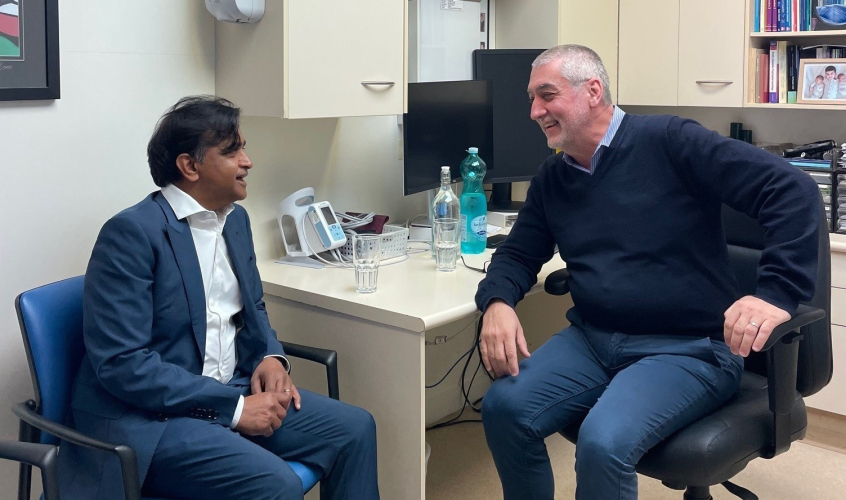
The latest ramping statistics were released on Friday, and once again, there’s little cause for celebration. In October, 3,984 hours were lost on the ramp across Adelaide’s public hospitals – the lowest figure in six months, as the Health Minister was quick to highlight – but still far too high. For comparison, 2,983 hours were lost in October 2024.
It’s clear that, just as it was at the last state election, ramping will be a central issue when South Australians head to the polls on 21 March. Nothing illustrates the strain on our health system more starkly.
To address ramping, healthcare leaders must focus on the underlying causes. This includes strategic workforce planning, clinically guided investment that delivers real reform in general practice and aged care and better connectivity across the health system. While the state government cannot solve every issue alone, it has a clear responsibility to address the factors within its control and to advocate strongly to the Federal government on those beyond its reach.
That’s why AMA SA – through the media – is calling for this election to be a turning point in addressing ramping. With polling day just four and a half months away, it’s time for politicians across the spectrum to tell voters how they will confront the root causes of the crisis in our health system.
AMA SA's election pillars
Through member surveys and direct conversations, many of you have told us what needs attention. Guided by AMA SA Council, we’ve developed three core election pillars:
- Access to care – Ensuring all South Australians have timely, equitable access to comprehensive healthcare, no matter where they live.
- Workforce resilience – Building and sustaining a medical workforce that is well-trained, well-supported, and distributed according to community need.
- Putting people first – Promoting community wellbeing through programs and policies that support preventative health and safe clinical oversight.
These pillars will shape our detailed election priorities in the lead-up to March, and we’ll be calling on all sides of politics to commit to costed, evidence-based policies that deliver results in these areas. AMA SA will release more details of our platform in the coming weeks, and I welcome your continued input as we refine our priorities: president@amasa.org.au.
Prioritising mental healthcare
Mental healthcare is, of course, a vital part of our platform. The AMA’s Public Hospital Report Card: Mental Health Edition 2025 highlights just how urgent the need for action is. The report shows that patients presenting to hospital with mental health emergencies are waiting an average of 11 hours and 18 minutes in EDs – a 70% increase over the past decade. Alarmingly, one in ten patients waited an average of 35 hours and 46 minutes – longer than in any other Australian state or territory.
It is heartening to see the South Australian Government continue to increase capacity in the system. The expansion at Noarlunga Hospital will bring another 24 mental health beds online, and we will keep calling on the government to build on this progress. The new Women’s and Children’s Hospital, in particular, must include provisions for young people to receive specialist care when hospitalisation is required.
In the media this week, I’ve also called for strategic, adequate investment in community care models to manage acute and chronic mental health conditions. This includes investment in crisis support, acute care teams, GP-led early intervention and follow-up after discharge to prevent people from reaching breaking point.
Bulk billing changes
I’ve been speaking with GPs about the Federal Government’s $7.9 billion overhaul of bulk billing incentives, which is now in effect. Last week, I was fortunate to meet several doctors in person to hear their views – Dr Andrew Kellie in Newton, Dr Mark Crawford in the Adelaide Hills, and Dr Jai Krishnan, Dr Sandesh Satish, and Dr Satya Koti in Salisbury Downs.
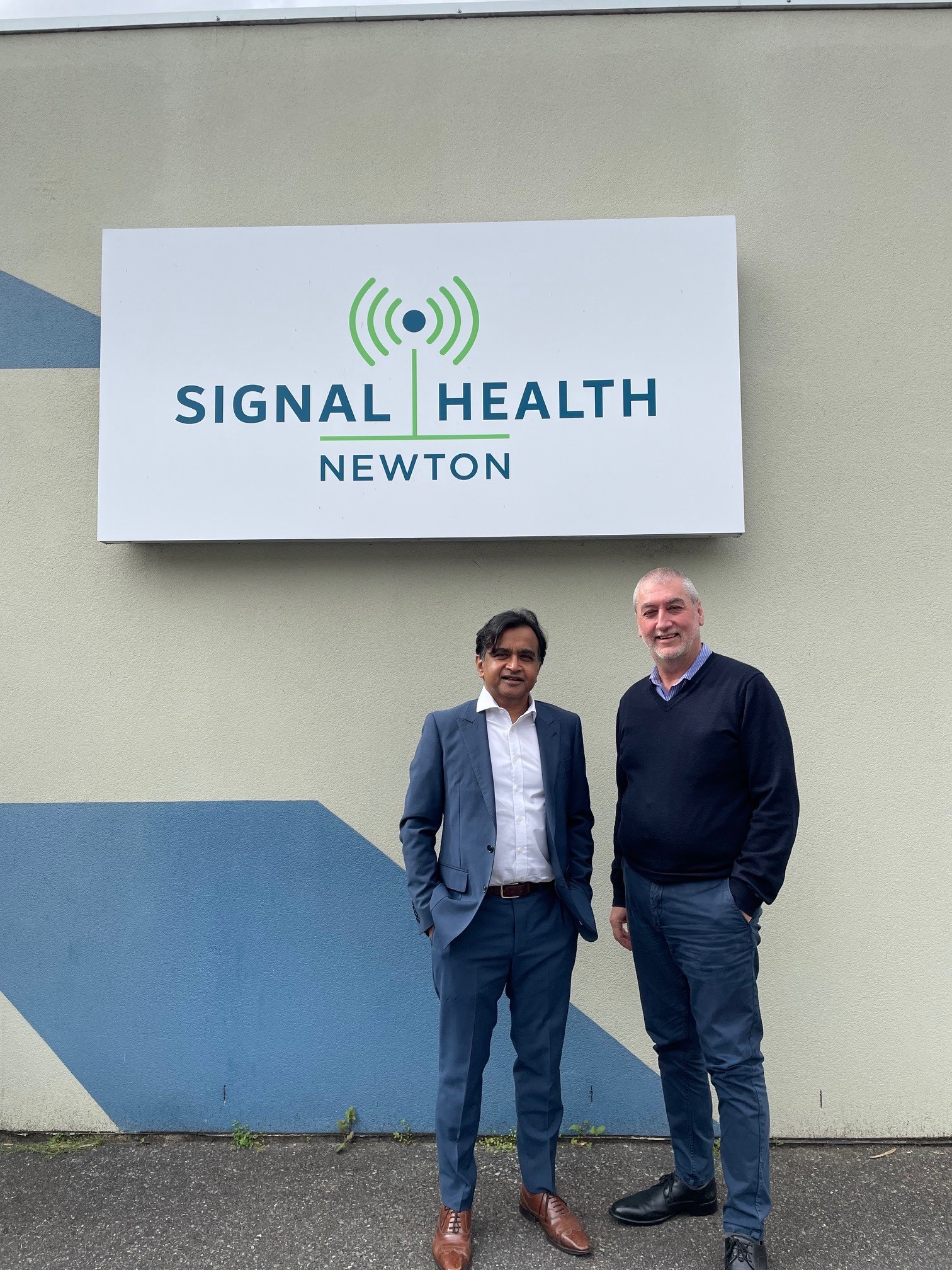
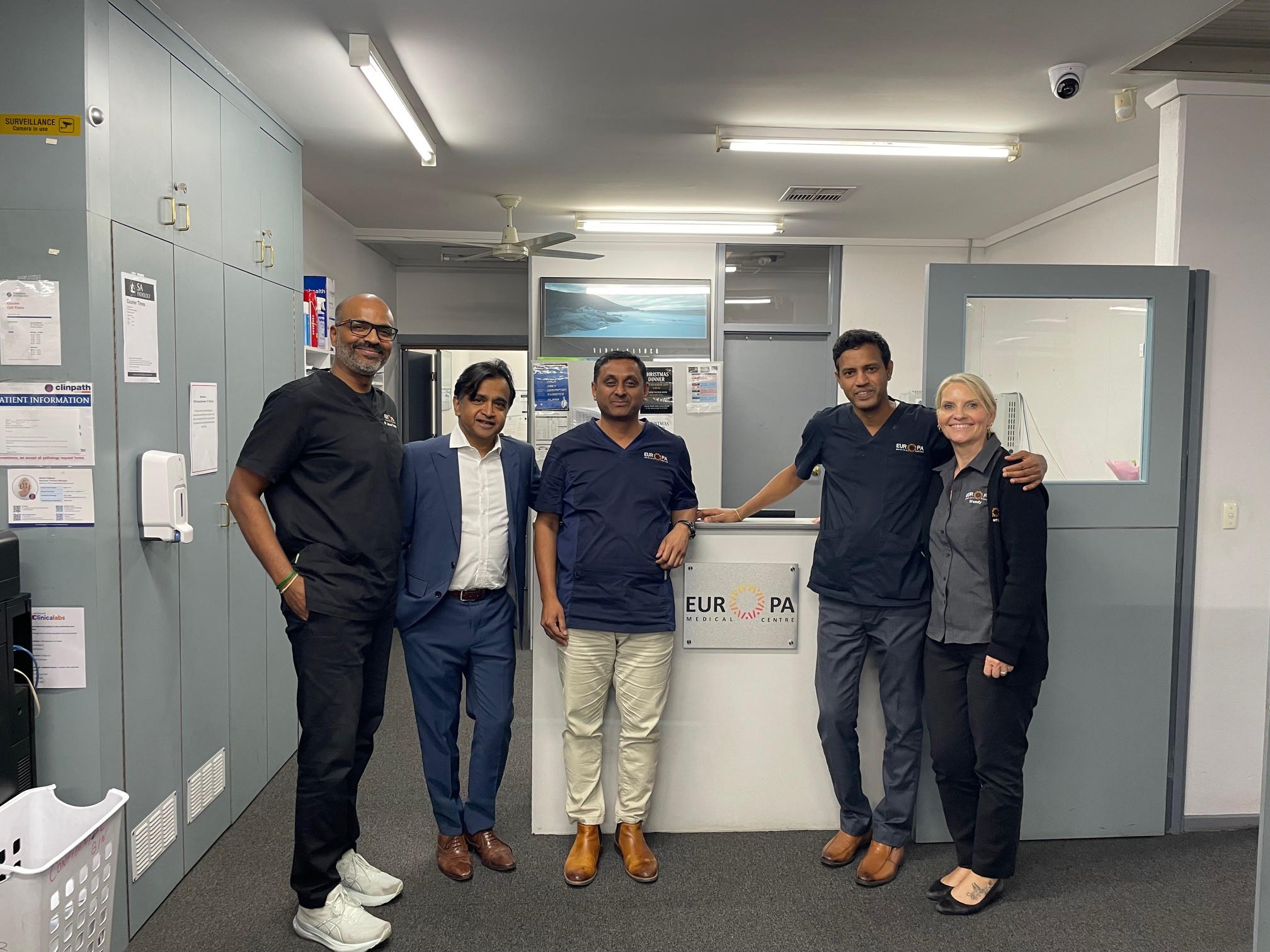
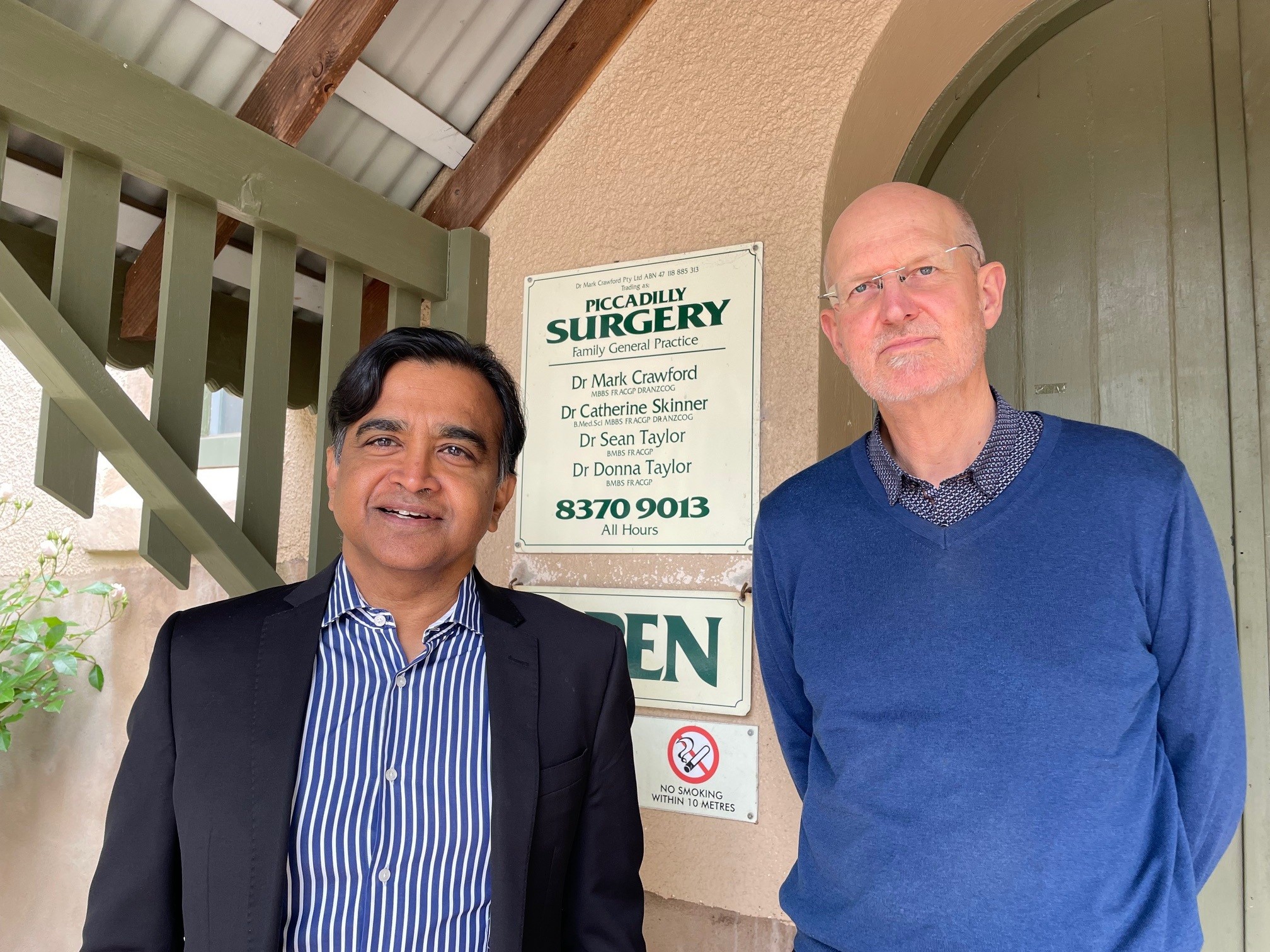
While some practices have adopted the 100% bulk billing model to access the initiative, many mixed billing practices have told me that costs and constraints on delivering services are significant challenges. The tension between expanded bulk billing requirements without adequate increases in base rebates risks practice viability – and the removal of dedicated mental health items undermines access for complex patients. In some cases, it has increased administrative burdens for GPs.
While the initiative is new and evaluation is ongoing, the expectation from patients that they will always be bulk billed is a concern being expressed by the GPs I’ve visited.
AMA SA will continue to work with GPs to advocate for policies that support general practice – a foundational and cost-effective component of our health system.
Engaging with SA’s health community
Over the past fortnight, I was pleased to represent AMA SA at several significant events. Celebrating 140 years of the Adelaide Medical School was a powerful reminder of South Australia’s proud legacy in medical education and research.
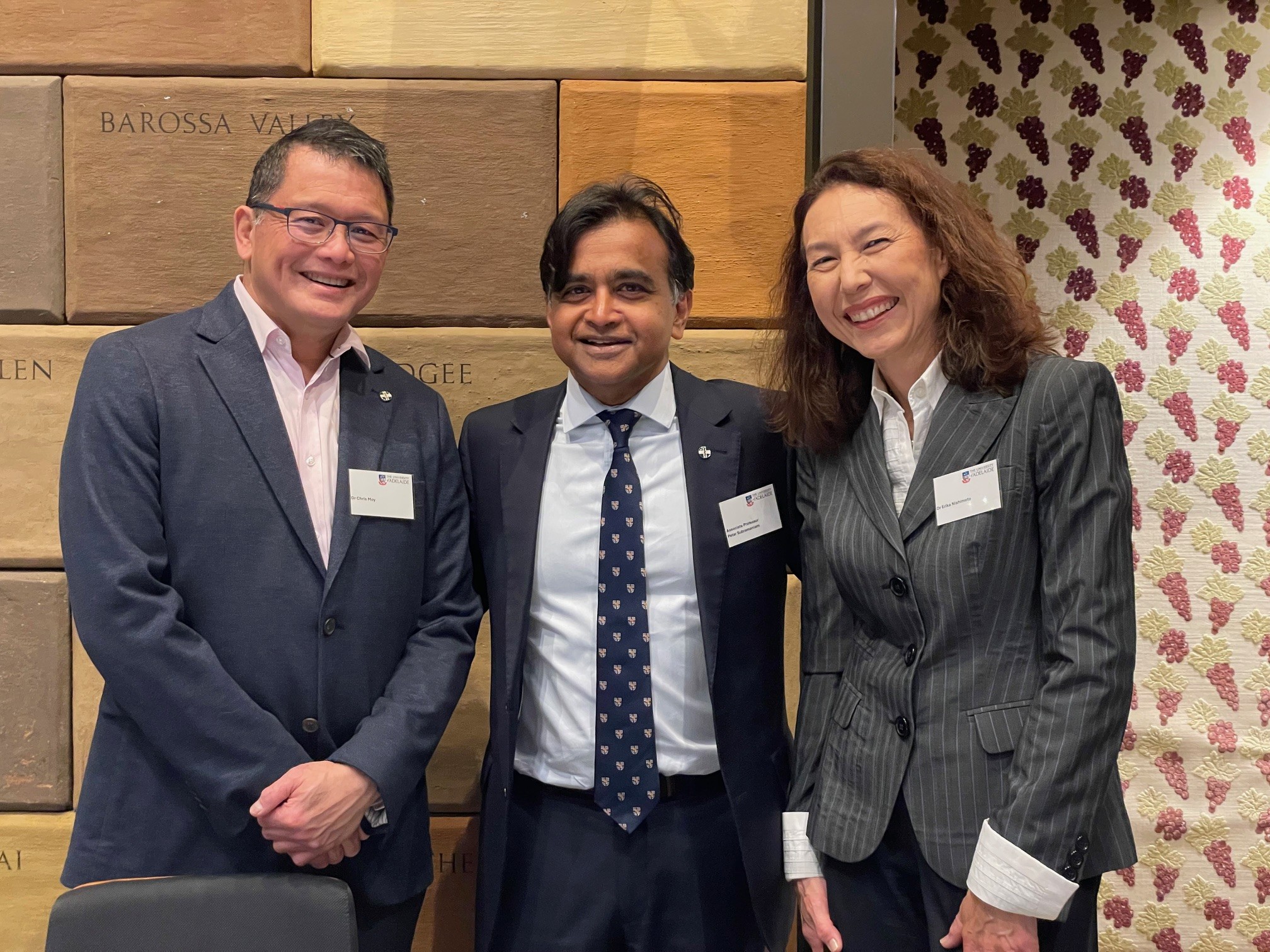
I also had the privilege of attending the 100th anniversary of Jones Radiology – a service that exemplifies innovation and patient-centred care, particularly in regional South Australia.
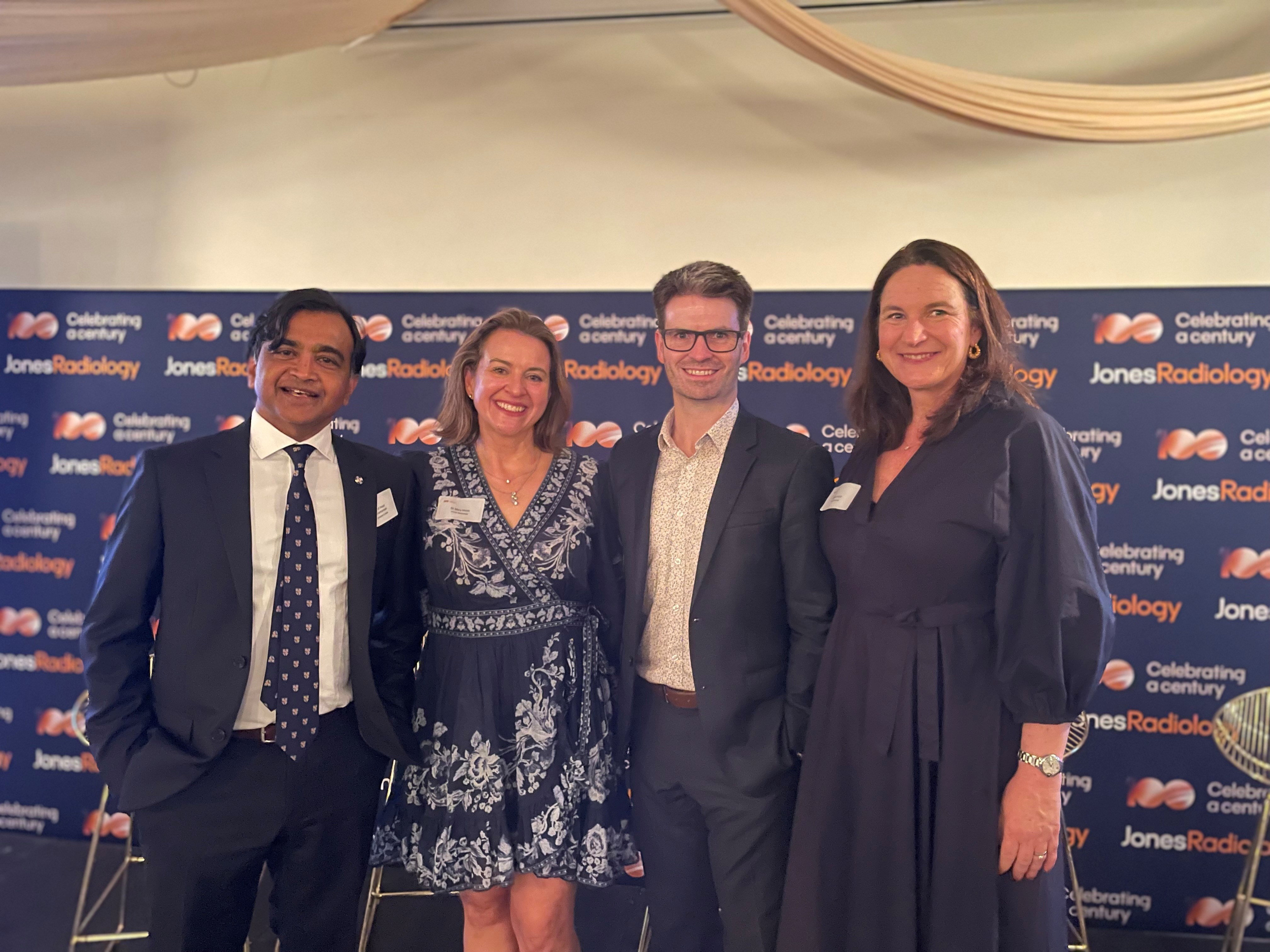
At the inaugural Big Heart Lunch for HeartKids, I joined colleagues in recognising the vital support provided to families living with childhood-onset heart disease. Each of these events reflects the deep commitment across our health community to excellence, compassion, and advocacy.
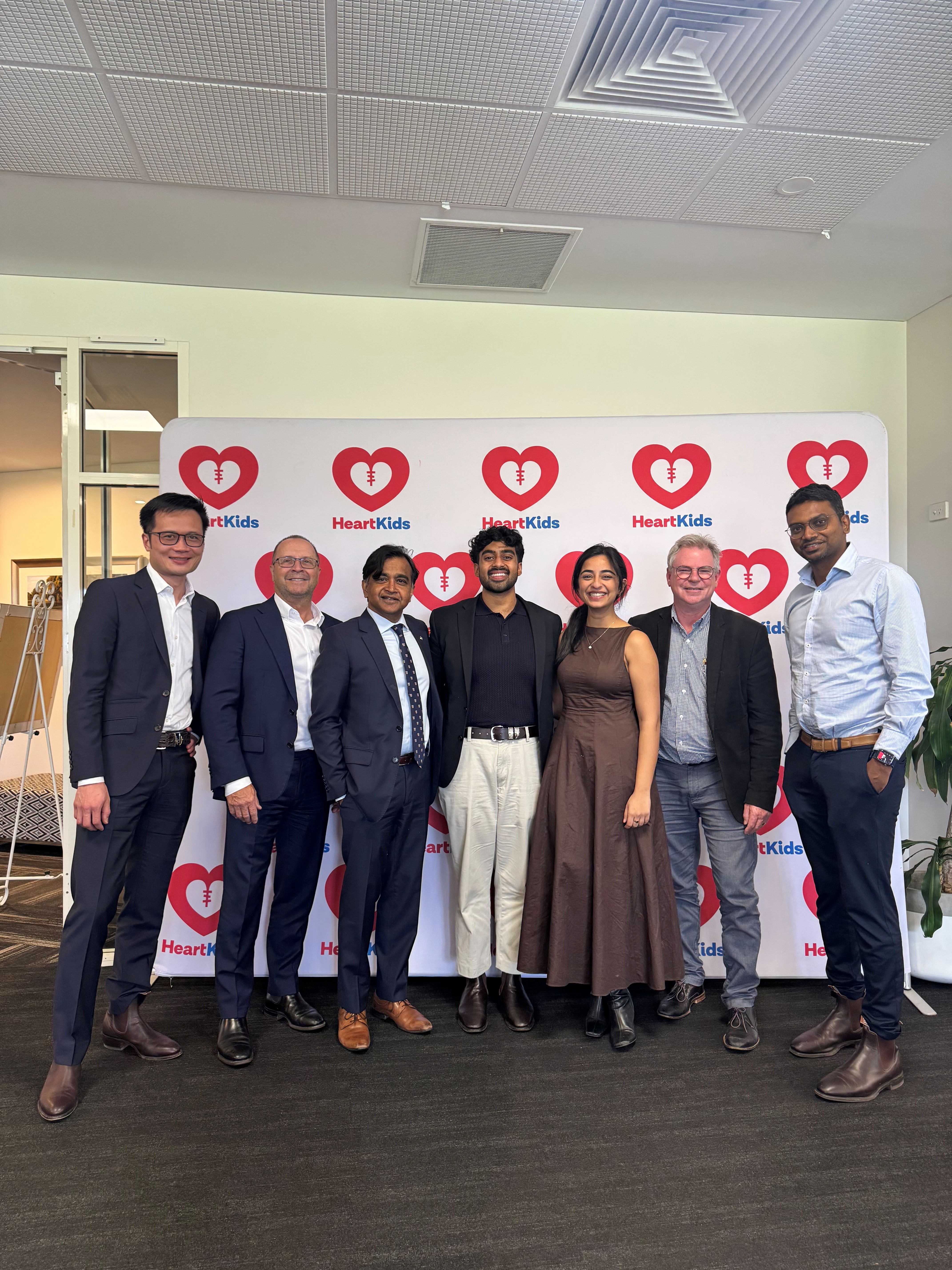
I also had the opportunity to meet with ACHA CEO Paul Evans. The private hospital sector in South Australia contributes important capacity to the South Australian health system, and it was good to continue our discussion on this and related issues.
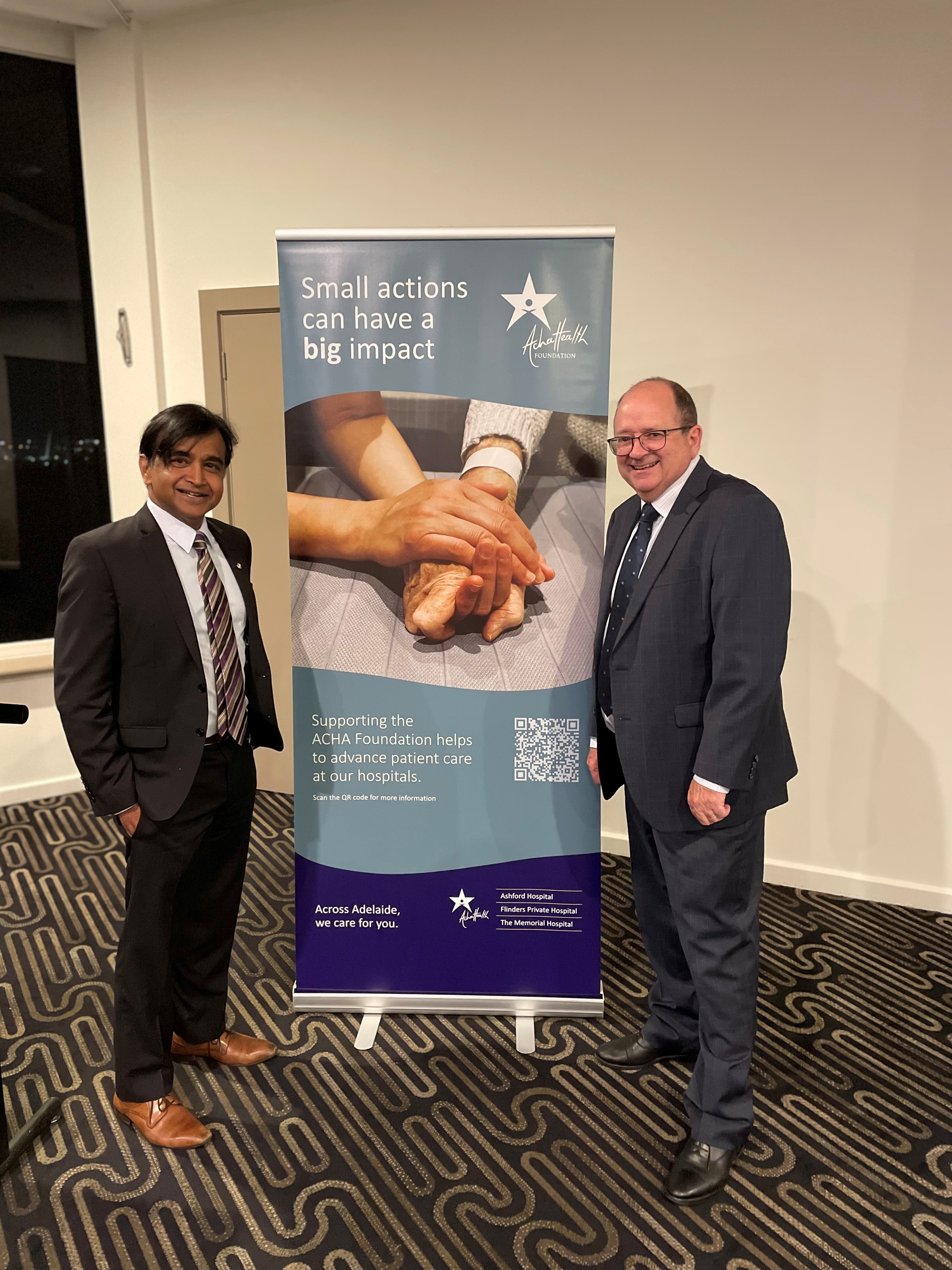
I look forward to continue representing you as we work together to create a healthier South Australia.